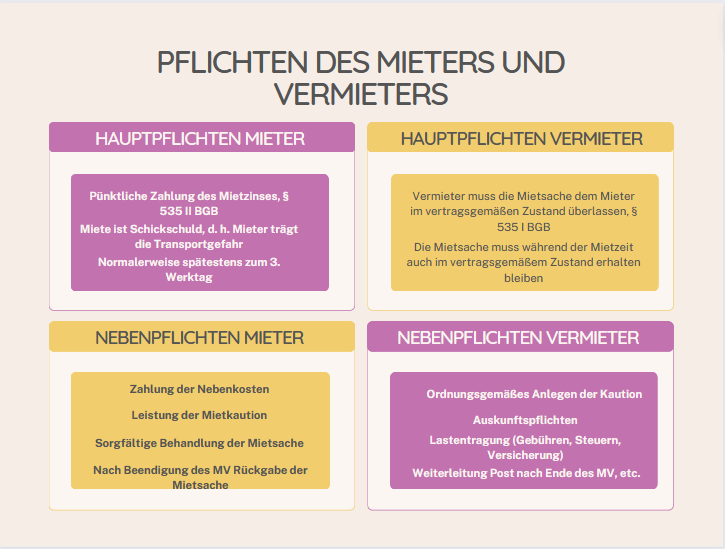Hersbruck Local Court, 04/02/2016, 11 C 146/15
Legionellosis is the most important waterborne disease in Germany. It is caused by bacteria that can multiply in warm water. They can occur in air conditioning systems, recooling systems and, above all, in drinking water. The consequences, merely inhalation, can be severe pneumonia, known as legionellosis or legionnaires' disease. Legionellosis must be reported in accordance with the Infection Protection Act.
If a legionella infestation is detected, it is the landlord's secondary obligation to inform the tenant of the nature and extent of any health risk. If the landlord fails to fulfil his secondary obligation despite requests from the tenant, the tenant has the right to terminate the lease.

Facts of the Case:
Legionella was detected in the drinking water system of a house
In the case at hand, a legionella infestation was detected in a property's drinking water pipe system. The professional water analysis revealed varying values at different measuring points. The highest value of the analyses was 11,500 colony-forming units per 100 ml. As a result, an information sheet was posted by the property management to inform them of the infestation. These values concerned a different flat than that of the plaintiffs.
Tenants demanded that the landlord inform them of the results of the expert opinion
In the following period, the plaintiffs (tenants) requested the defendant to disclose the results of the drinking water sampling and the findings of the risk analysis. Despite the request, the requested results were not disclosed by the defendant (landlord). It was not until a good month later that the defendants were informed that a single value of 500 CFU/100 ml had been measured for their flat.
Tenants declare termination of the tenancy without notice
The plaintiff then wrote to the defendants - approximately one month later - declaring extraordinary termination of the tenancy. The termination was justified on the grounds that it was no longer possible to live in the infested flat due to acute health risks. Despite several requests, the defendant had not informed the plaintiff of the relevant risk analyses. Furthermore, the information on the current status of the remediation measures and the current extent of the legionella infestation had not been provided.
The plaintiffs were therefore of the opinion that extraordinary termination was justified due to the defendant's breach of secondary obligations. In particular, the defendants had breached their duty to inform the plaintiffs fully and truthfully about any health hazards in the rented property
Judgement of the Local Court of Hersbruck:
Local court sees breach of duty by landlord in rental contract
The Hersbruck District Court agreed with the plaintiff's view and ruled that the defendant was in breach of its obligations as landlord, as it had failed to fulfil its obligations under the rental agreement with the plaintiffs. The defendant had been requested several times to disclose the details of the legionella infestation in the property's drinking water pipe system. This is because in the event of a legionella infestation in the drinking water system, the landlord is obliged to inform the tenants of the type and extent of any health risk so that tenants can take self-protective measures if necessary to avert possible damage to their health.
The contractual relationship had been permanently disrupted by the breach of secondary obligations
The contractual relationship between the tenants and the landlord had been permanently disturbed by such a breach of secondary obligations on the part of the defendant, so that the tenants had a right to terminate the contract, but no right to extraordinary termination.
An extraordinary termination in accordance with Section 543 (1) BGB requires that, as part of a comprehensive weighing of interests, taking into account all circumstances of the individual case, there is such a serious breach of contract by the other party that the party entitled to terminate the tenancy cannot reasonably be expected to continue the tenancy until the expiry of the notice period or until the tenancy is otherwise terminated (see Schmidt-Futterer, Mietrecht, 10th edition, Section 543 BGB RN 164 with further references).
Despite being aware of the legionella infestation, the tenants continued to live there for a long time, so there was no termination without notice
However, the plaintiffs had continued to live in their property for further months despite knowing that there was a legionella infestation and had thus disproved their need for an immediate termination of the tenancy. Therefore, they could reasonably be expected to issue an ordinary notice of termination and to wait for the expiry of an ordinary notice period. Furthermore, there was no longer a concrete health risk at the time of the termination.
Source: Hersbrück Local Court
Important Note: The content of this article has been prepared to the best of our knowledge and belief. However, due to the complexity and constant evolution of the subject matter, we must exclude liability and warranty. Important Notice: The content of this article has been created to the best of our knowledge and understanding. However, due to the complexity and constant changes in the subject matter, we must exclude any liability and warranty.
If you need legal advice, please feel free to call us at 0221 - 80187670 or send us an email at or send an email to info@mth-partner.de info@mth-partner.de
Lawyers in Cologne provide advice and representation in tenancy law.



